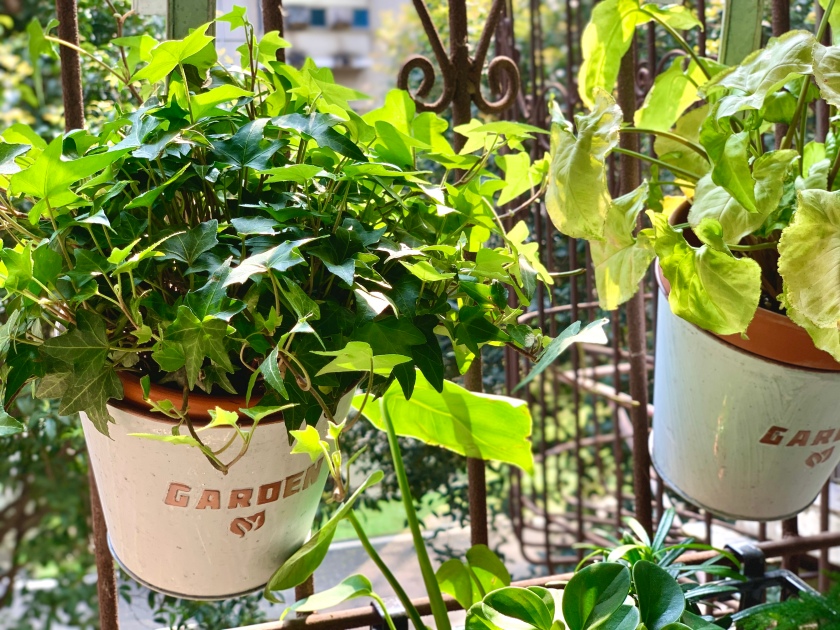By Tome Loulin
From a very early time of that summer, I come to imagine that it would only be a matter of time before we again walk together, only to realize that a thing that comes along easily doesn’t necessarily walk away the same way. Everything, it occurred, comes and departs in its own preferred way.
It was about time for me to go home just as you were ready to work when the summer sun whose light glistened through the window of your room was in its prime near Hankou’s side of Yangzi. Seeing my worried face, and voice lowered, you said the watch lost a day ago when we strolled together around a lakeside really wasn’t that important. “It just isn’t.” you assured me, rejecting the offer I proposed to buy a watch for you.
Pinned on the wall of your room were postcards and letters of gratitude you received—from individuals you encountered before in the different stages of your life. In one of such photos appeared a couple in their middle fifties squatting beside a dog before their house near–if I didn’t remember it wrong– Nashville, Tennessee. Before your vivid and detailed recounts about your life in Nashville many years ago, your experience of working there as a K-12 teacher of Mandarin Chinese, the room you rented there, and the beautiful pictures about you and the students you taught, I knew almost nothing substantial about Nashville other than it being the heart of American country music, let alone any intimate imagination about it. In one of these photos appeared houseplants placed on a wooden desk in your previous room; besides a nightstand was a black iron single bed covered with white beddings. And when you talked about Nashville, your voice was like, I felt, filled with ineffable liveliness that was lovingly touching to me as if all of the things that you recounted—green plants, your students, and the days you spent in the States—were emerging afresh from your memory, rippling across mine.
On the windowsill were potted plants you took care of thoroughly; beside it several lucky bamboos in vases growing with time bigger and bigger. Such is the delicacy and sophistication of the way the room was decorated that so much was said, I thought, of your carefulness of life’s beautifulness. After we saw the sun set and biked along the lake of Donghu together, the electronic watch you wore was lost, you, astride the bike seat, said, leaving me several meters away from you speechless because I didn’t expect such thing to happen in a time when all I was thinking of was how could I maintain a happy memory for us and a good impression of me to you. And it was the first time we set our feet together to walk in a park where trees were everywhere though everyone who came here looked indifferent to the issue we encountered.
There was like a sea of people waving up and down on the road by the winds coming afar when I tried to bike as fast as I could to go back to where the watch could perhaps get lost. “If this is truly lost,” I thought, “this evening would be a very upsettingly remembered one.” So, losing almost no time of searching and lying the bike on the ground unlocked, I checked bench after bench near where we had sat around of the evening but found no clue of its whereabouts.
“Why this worried,” you said to me, “it’s truly unnecessary for I could buy another one.”
But somehow, aware of your voice lowered, though still touchingly soft, I felt that until the lost thing be recovered, our sentiment towards each other would never be the same as before. I insisted to buy a watch as a gift to you but very determinedly you refused. So it occurred to me that your sentiment is perhaps that if it was truly lost, so be it. I was not this prepared for this suddenness of change occurred during that evening walk.
Life changes fast. And it truly does, I think when reading the opening lines of Didion’s the Year of Magical Thinking.
Life changes in the instant.
And I start to think of the way we think about each other.
As we walk around the lake and try to know each more, the way we thought of one another exists no longer.
Sideways were bikers speeding toward another way after we got our way back to the room you rented but I wasn’t attentive as was before. Of course, the feeling I had that evening after the event was a travail matter of personal tranquility compared to other life matters but what challenged this sense of triviality was that a parent of the student in your class contacted you and asked whether the watch picked by a stranger in the park was yours thanks to the phone numbers you saved in the watch. I was in surprise, especially after my doubt that there would be zero possibility to find the lost watch given the current social reality characterized by radical indifference of social connections.
Away summer goes and comes back. Along the lake bank Over the water was the reflection of the sun Setting westward back. -Loulin
“Believe in the goodness of people.” You had said then. And it was then I was to wonder whether there was such thing as destiny. And from a very early age, immersed in Chinese cultural environment while growing up, I knew destiny is a concept widely believed by many and it was not until the turn of the century that the concept was to lose some of its attractions to younger generations.
But I knew, in that moment, the coincidence couldn’t be more demonstrative to me, which is, you were like the sun whose light shone through the heart of the wounded. It occurred, like what you had already been doing, that to see the positive side of, if possible, everything is how can we better regard the pains we felt while growing up.
Though I lost your connection due to my own carelessness, I tried hard, if not helplessly, to imagine that I didn’t because that experience was just too cherishing to lose.
In trying times like this when everything reported or described on newspaper appears horrifyingly intentioned and purposed, I start to think of the time I spent with you in the very evening, perhaps years before. And it is healing.
This memory, though certain details of it are blurred with time, still seems so close to me that my tears well up when I look back to the pictures I took then or anything related to that memory.


